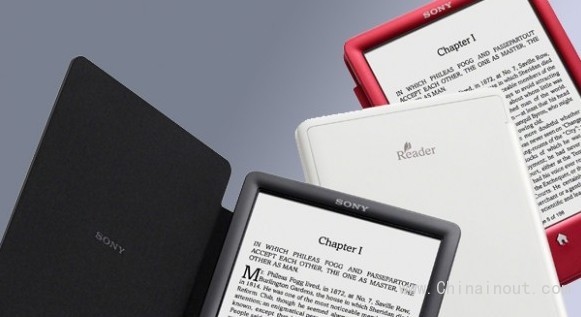 索尼已經(jīng)確認它將永久地退出電紙書硬件市場,。
索尼已經(jīng)確認它將永久地退出電紙書硬件市場,。
在和亞馬遜的電紙書系列的競爭中,,索尼敗下陣來,,它舉了白旗,,索尼宣布它將退出電紙書市場,。
很顯然,,索尼已經(jīng)決定放棄電紙書的生產(chǎn)線是因為對索尼而言,,這一產(chǎn)品并不能帶來經(jīng)濟上的可觀收益,。
在一次對BBC的公開聲明上,,索尼這樣說:“我們并不打算在這一時期開發(fā)一個閱讀器模型,。”
今年的早些時候,索尼關(guān)閉了它擁有的電紙書店,,使得它的已有的客戶投向它的競爭對手Kobo(加拿大電紙書品牌),。
在這次聲明中,索尼說: “盡管我們公司很遺憾的與讀者商店(Reader Store)說再見了,,但同時我們也要與我們的顧客分享一個全新的,,令人興奮的未來,,即讀者商店會把它原有的顧客轉(zhuǎn)向Kobo—一個讓人羨慕的電紙書銷售商,擁有著充滿熱情的閱讀社區(qū),。”
Sony PRS-T3 eBook Reader將會是索尼公司在電紙書領(lǐng)域推出的最后的和最終的產(chǎn)品,。這一產(chǎn)品將會持續(xù)銷售,直到庫存清空,。
亞馬遜的電紙書產(chǎn)品Amazon Kindle Paperwhite在電紙書市場領(lǐng)域占有絕對的統(tǒng)治地位,,盡管索尼以及像Nook(美國巴諾書店推出的電紙書品牌)和Kobo本身已經(jīng)做得相當棒了。
實際上,,索尼在電紙書市場領(lǐng)域要比亞馬遜呆的時間要長一些,。索尼在2004年就發(fā)布了它的第一步產(chǎn)品--- the Sony Librie,而直到2007年,,亞馬遜的kindle電紙書才橫空出世,。
索尼讀者商店(Reader Store)正在垂死掙扎,因為它的書的種類很少,,因此它在電紙書領(lǐng)域呢也是垂死掙扎,。它并不能和能提供眾多圖書閱覽和提供更便宜的電紙書硬件的亞馬遜相競爭。(欲了解更多資訊,,請關(guān)注中國進出口網(wǎng):doscana.com)
Sony has confirmed that it is pulling out of the eReader hardware market permanently.
Basically waving the white flag of surrender in the eReader battle to Amazon’s Kindle range, Sony has announced it withdrawing from the market.
Apparently, the company has decided to abandon its eReader product line because it is “no longer economically viable” for Sony.
“We do not have plans to develop a successor Reader model at this time,” said Sony in a statement to the BBC.
Earlier this year, Sony closed down its own eBook store, directing existing users to its rival Kobo.
“Although we’re sorry to say goodbye to the Reader Store, we’re also glad to share with you the new, exciting future for our reads: Reader Store will transfer customers to Kobo – an admired eBook seller with a passionate reading community,” said Sony in a statement at the time.
The Sony PRS-T3 eBook Reader was the last and final iteration of Sony’s eBook reader range and will continue to be sold until stocks have been depleted.
Amazon’s eReaders like the Amazon Kindle Paperwhite pretty much have market dominance in the eBook reader space, despite Sony and rivals like Nook and Kobo itself doing their best.
Sony has actually been in the eReader market for a lot longer than Amazon, launching the first eReader back in 2004 – the Sony Librie. The first Amazon Kindle eReader wasn’t introduced until 2007.
The Sony Reader Store struggled due to limited book range and thus its eReader range started to struggle. It just couldn’t compete with the vast libraries offered by Amazon and the cheaper entry point for rival eBook reader hardware.
Sony has confirmed that it is pulling out of the eReader hardware market permanently.
Basically waving the white flag of surrender in the eReader battle to Amazon’s Kindle range, Sony has announced it withdrawing from the market.
Apparently, the company has decided to abandon its eReader product line because it is “no longer economically viable” for Sony.
“We do not have plans to develop a successor Reader model at this time,” said Sony in a statement to the BBC.
Earlier this year, Sony closed down its own eBook store, directing existing users to its rival Kobo.
“Although we’re sorry to say goodbye to the Reader Store, we’re also glad to share with you the new, exciting future for our reads: Reader Store will transfer customers to Kobo – an admired eBook seller with a passionate reading community,” said Sony in a statement at the time.
The Sony PRS-T3 eBook Reader was the last and final iteration of Sony’s eBook reader range and will continue to be sold until stocks have been depleted.
Amazon’s eReaders like the Amazon Kindle Paperwhite pretty much have market dominance in the eBook reader space, despite Sony and rivals like Nook and Kobo itself doing their best.
Sony has actually been in the eReader market for a lot longer than Amazon, launching the first eReader back in 2004 – the Sony Librie. The first Amazon Kindle eReader wasn’t introduced until 2007.
The Sony Reader Store struggled due to limited book range and thus its eReader range started to struggle. It just couldn’t compete with the vast libraries offered by Amazon and the cheaper entry point for rival eBook reader hardware.









